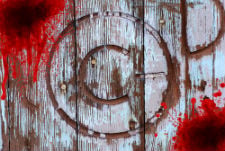For readers unfamiliar with her work, Ellen Seidler is a multi-talented filmmaker, journalist, lecturer and photographer based in the United States. She is also one of the web’s most outspoken critics of online piracy.
Seidler’s crusade began following the release of her movie “And Then Came Lola” in 2010 which, along with every other movie ever, was pirated online. It’s clear from her posts on Vox Indie that this was a turning point and her motivation to highlight piracy’s harms at every opportunity.
This week Seidler published a piece titled ‘BOGUS fair use claims hurt creators already victimized by piracy‘ in which she continued her full frontal assault on Google/YouTube and its users, something that has become a feature of her writing in recent times.
“There was a lot of talk about fair use and takedown abuse at last week’s U.S. Copyright Office Section 512 roundtables in San Francisco. Many of those who spoke, bemoaned how poor, innocent uploaders were victimized, time after time, by malicious DMCA takedowns,” Seidler wrote.
“It’s a tried and true talking point, convenient, but disingenuous all the same. Some of us, myself included, tried to make the point that creators, whose work is routinely (and massively stolen), are often (doubly) victimized by malicious fair use claims.”
Although not mentioned directly, it’s likely that Seidler was referencing efforts by groups such as Fight For The Future and Channel Awesome to ensure that fair use is protected following any revision of the DMCA. They were at the discussions last week doing just that and to suggest those kinds of efforts are disingenuous is pretty unfair. But lets rewind.
As explained in her article, Seidler’s problem stems from the fact that some of YouTube’s users are uploading copyright-infringing content (in this case a full movie whose creator Seidler represents) and making it available via the platform. In this instance YouTube’s own ContentID system flagged the work correctly and the video was blocked. However, that wasn’t the end of the story.
“This YouTube user didn’t seem to think the rights holder had the right to block the full, infringing copy and promptly disputed the block,” Seidler wrote.
“Approval from copyright holder is not required,” the user reportedly wrote in a counter-notice. “It is fair use under copyright law. I don’t need to explain.”
Needless to say, this wrongful claim of fair use had Seidler seeing red.
“Despite all the testimony at last week’s roundtable about fair use and how copyright holders seek out to punish those who claim it using malicious takedowns, it’s worth pointing out, yet again, that for every legit ‘fair use’ claim, there are also false, and rather malicious, abuses of that defense. It’s a fact conveniently overlooked by the anti-copyright apologists,” she wrote.
The above paragraph is somewhat frustrating. People wanting to exercise their legal right to fair use absolutely have a right to protest when they fear that right is under threat. Furthermore, people making fair use claims on a full movie have no connection with those using snippets of content for commentary, parody, criticism or news reporting purposes. That being said, Seidler definitely has a point.
Someone uploading a full movie to YouTube and then claiming ‘fair use’ absent of any of the defining features should not be allowed to do so without repercussions. If fair use is worth protecting then it stands to reason that supporters should not allow it to be abused. There’s little doubt that people claiming fair use in these circumstances hurt the cause.
So here’s a proposal. If we are to protect the sanctity of fair use then abusers need to be held to account, that means that people uploading full movies to YouTube and then filing for bogus fair use protection should have a strike put against their account and eventually terminated from the site.
In return, those who file bogus copyright claims against those who have a legitimate fair use defense should be held to exactly the same standards. File an erroneous claim against a legitimate video, get a strike against your Content ID account. Do it several more times, lose the right to file copyright complaints on YouTube.
Of course, this proposal is never likely to be accepted by the entertainment industries since they all screw up regularly and that would put them in a position of not being able to protect their works. While that would be unfortunate, the exercise illustrates a point.
Protecting content such as that published on Channel Awesome, for example, is just as important as protecting content pushed out by the studios. Therefore, if we are to deal with abuses of the DMCA and fair use then the same rules simply must apply to everyone – no exceptions.
Strikes on one side must be matched by strikes on the other. Deal?







